How Lexus Racing Won The 2023 GTD Pro Manufacturers Championship
Lexus Racing’s winning IMSA season concluded at Petit Le Mans, a 10-hour war of attrition at Road Atlanta.
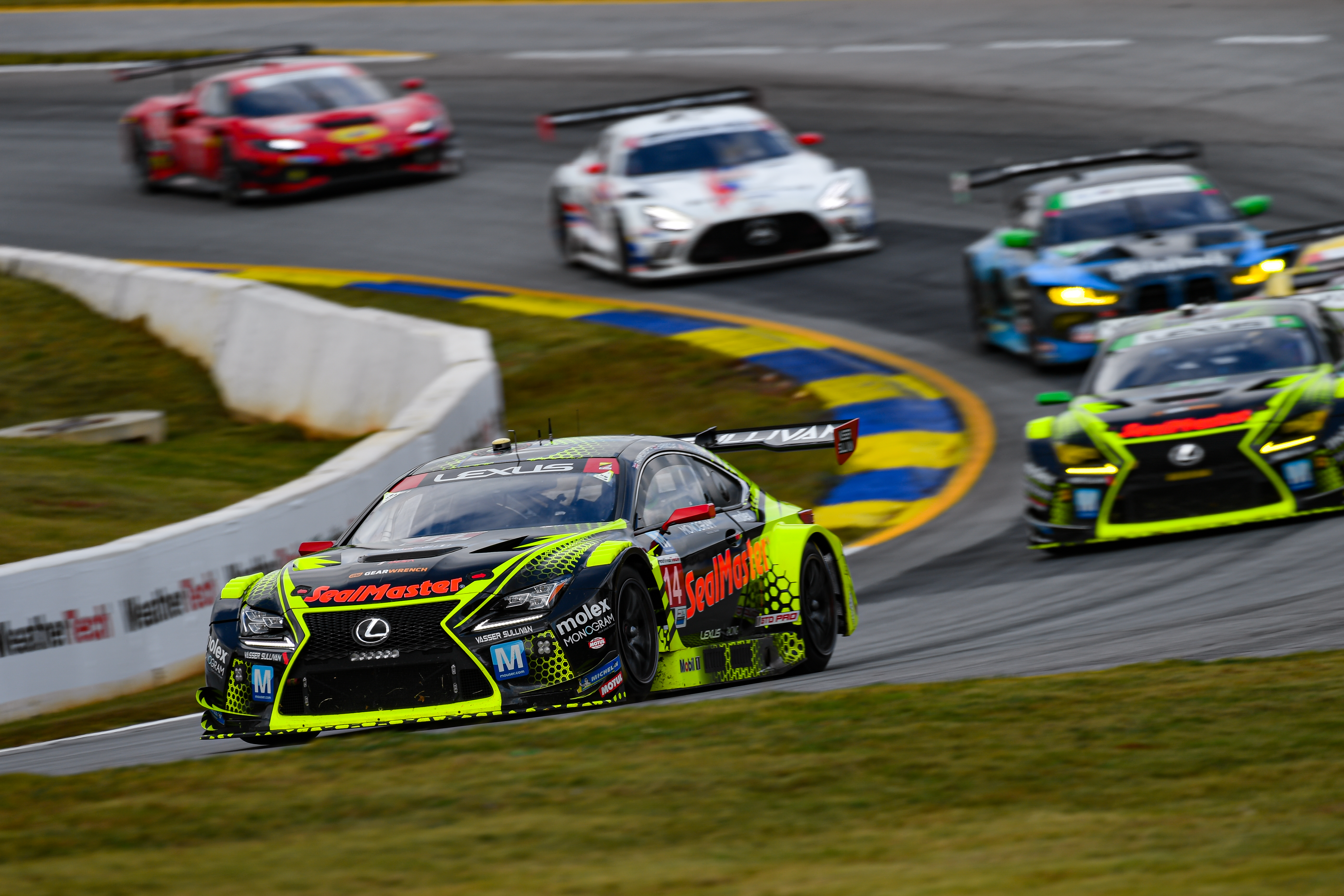
When I embedded with Lexus Racing and Vasser Sullivan for the first race of the 2023 IMSA season at the 24 Hours of Daytona, I couldn’t have predicted that the team would end the season as champions.
It was just a lucky bookend to the Daytona trip that I went to Road Atlanta for the final race of the year: Petit Le Mans. Because of their solid performances week to week in races all year long, the No. 14 GTD Pro car secured the championship trophy before the last race began. And given the wild unpredictability of the 10-hour-long war of attrition on the crowded Georgia track, that meant everything.
In Racecar Country
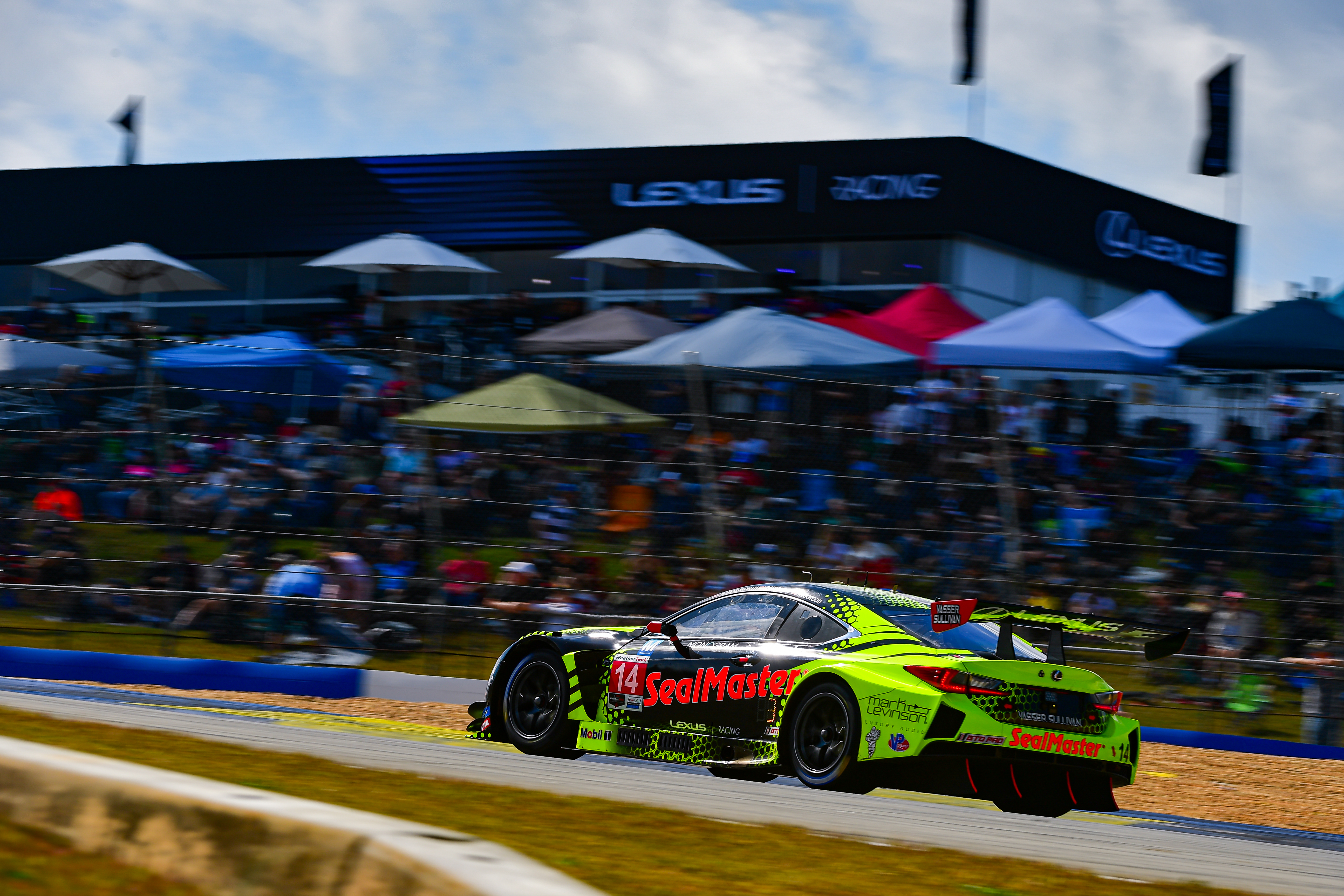
I made the trip from Charleston to Buford, Georgia in a new Lexus NX 350 F-Sport—Lexus’ nimblest and fastest SUV. As my wife and I zipped through the rolling hills of cows, flags, and half-built condos in the Atlanta hinterlands, we knew we were in for a much different experience than Daytona Beach. This would be our first real taste of the workaday race weekends that winning seasons are built out of.
When we pulled up to Will Call, our Daytona pal and Lexus media liaison, Sam Mahoney, hopped in our car to help us navigate the winding road that tunneled under the track, then down a steep hill through forested campsites that reminded me I wasn’t far from where Deliverance was filmed. Then we drove through a sprawl of campers and tents where fans pre-gamed for the next day’s main event while practice laps of the prototype cars roared in the air like jets to battle.
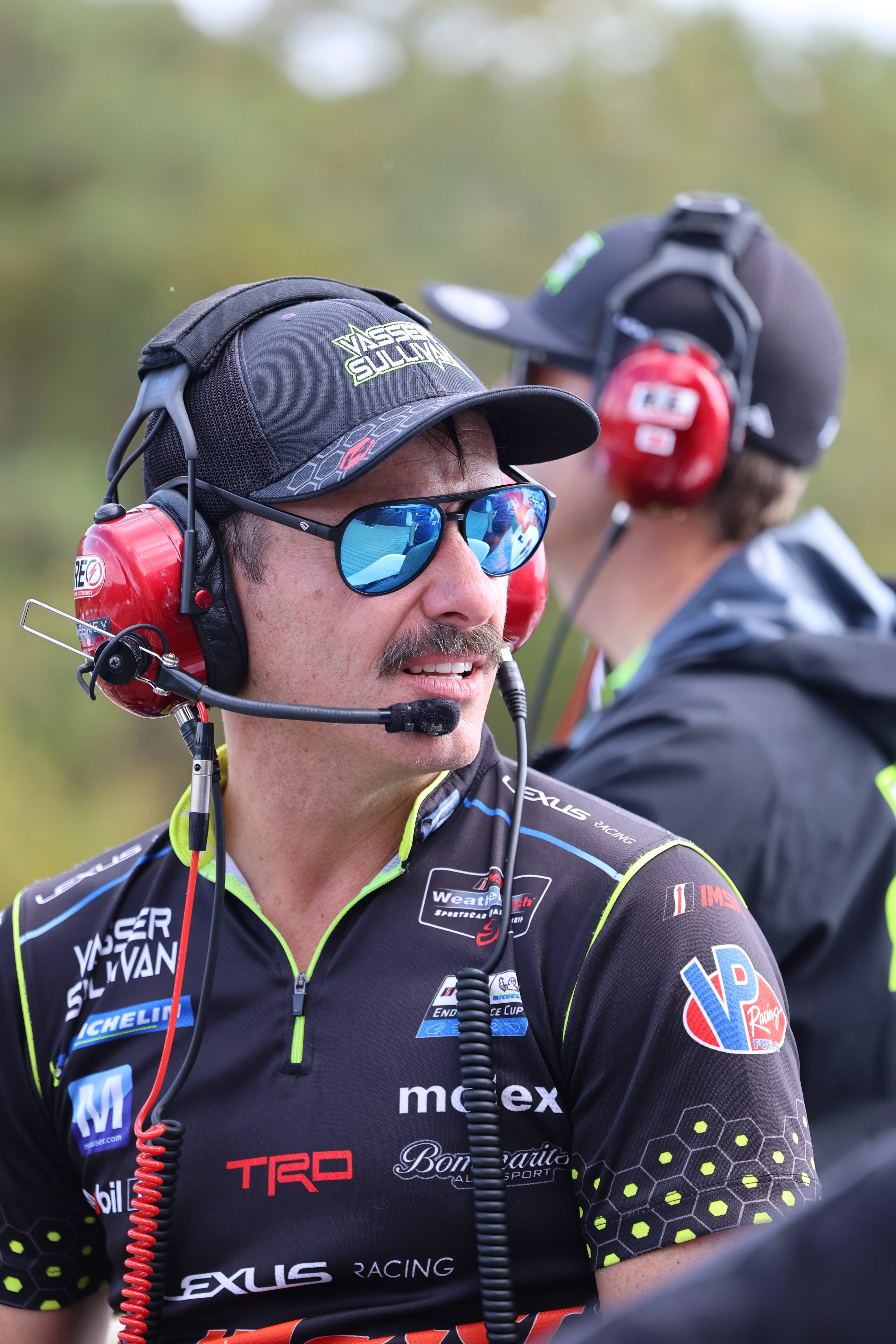
“This is a lot more typical for a race weekend,” said Mahoney, who handles media trips for both Toyota and Lexus across IMSA and NASCAR. “Daytona is its own beast, but this is what it’s really like.”
Away from the carnival atmosphere of Daytona Speedway, and whatever ineffable thing it is that makes Florida its own world, Petit Le Mans felt like a pure and potent dose of America, 2023.
The Hot Lap
We did a hot lap at Daytona with a professional driver in the Lexus IS 500, and it was intense as hell. But in the same car at Road Atlanta, the hot lap rearranged internal organs for everyone except for our driver, Johannes. He was calm as a surgeon and chatting nonchalantly while we gasped and grabbed at anything solid within reach.

The track has 12 turns over 2.54 miles, with an 80-foot drop between the 11th and the 12th turns. After just one lap on the track, I wasn’t surprised at all when car after car had to be towed off for crashes on race day.
Drivers Of Change
Driver Jack Hawksworth has been with the team for seven years and has helped build the team up to champion standards. “To see the progress of where it’s come from to where we are today is the highlight of my career,” he says.
“We haven’t always had the fastest car every weekend, but we’ve found ways of grinding out results,” says Hawksworth, who had nine out ten podium finishes this year. “Once the race starts tomorrow, no one can take this away from us,” he said. “Whatever happens, we’ll always have this year.”
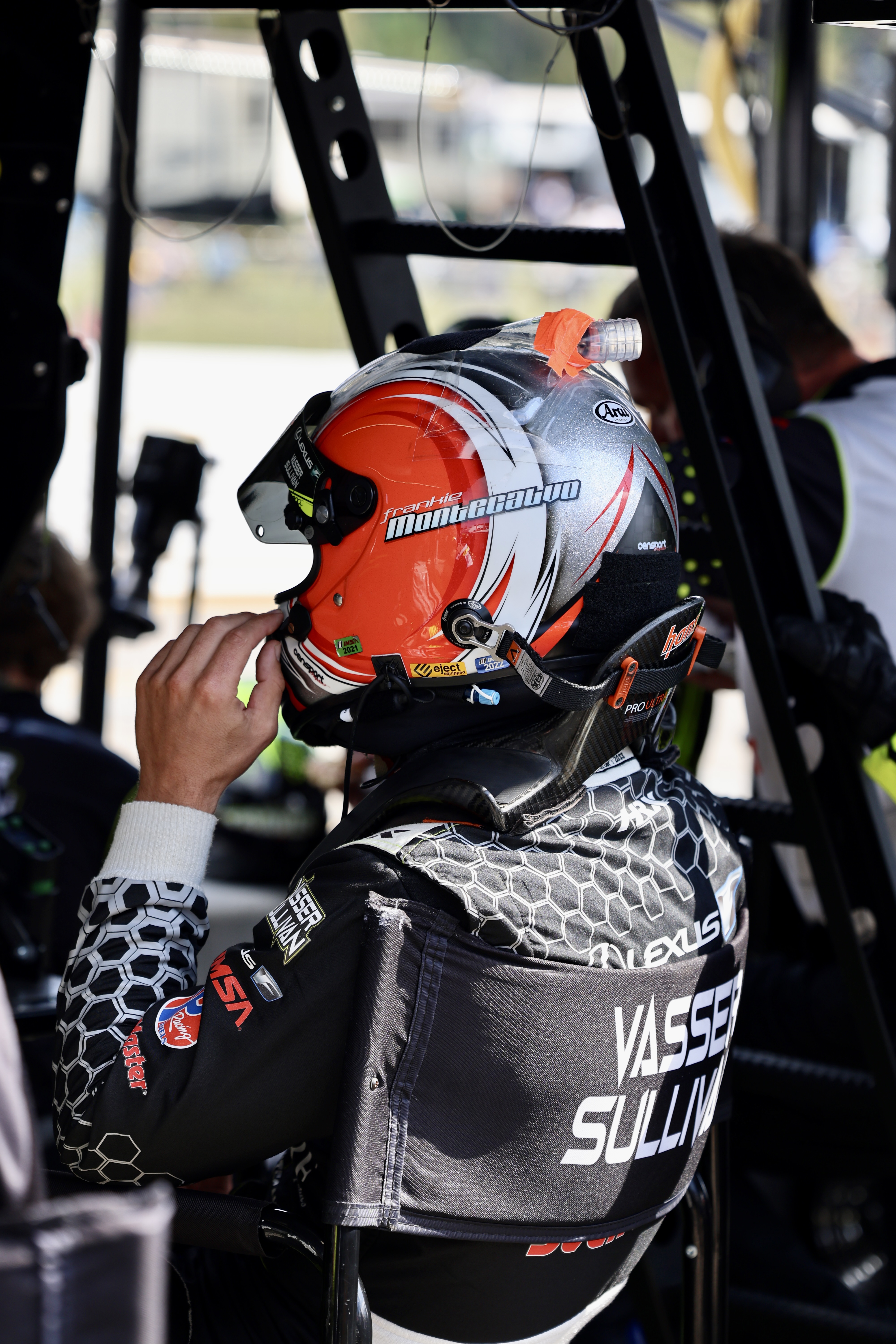
“What we’ve achieved this year is something that people dream of—that I’ve dreamed of,” said Ben Barnicoat, also a driver in the No. 14 GTD Pro car. It’s his second year with the team, and he and Hawksworth will both be returning for 2024. “If you’d asked me three or four years ago where would I want to be now, it’d be GTD Pro Champion of IMSA,” said Barnicoat, who chalked their success up to “just doing the same thing week-in and week-out.”
I asked both drivers what the biggest challenges were for the race ahead, and they both agreed: traffic. “This is gonna be the craziest race based on the amount of traffic,” said Hawksworth. Blind corners, elevation changes, and prototype cars blasting around the track. “It’s a matter of survival and attrition,” said Barnicoat, “so making sure you get to the last couple of hours with a clean car is the key for this race.”
The Millimeter Men
According to the pit crew, the biggest surprise for most people about what goes on the behind the scenes at a race is just how minute the adjustments are relative to the outcomes they can produce.
“People don’t realize how small the increments are of the adjustments that we make,” said Bozi Tatarevic, a member of the No. 14 car’s pit crew. “A millimeter or two millimeters has an effect on how the car drives and how the tires wear.”
Tatarevic took me to see the car with its wheels removed, and pointed at tiny millimeter-thick discs in the axel that can be added or removed for micro-adjustments. How important is this level of detail? “You could lose a race over a three dollar part,” said Chris Bell, another member of the pit crew.
The team’s pit crews have 40-item checklists for each car, and that doesn’t include all the checks done by the dedicated gearbox specialist. And that obsessive precision isn’t just about hardware. Crews choreograph their moves at the stops with the same level of minute focus.
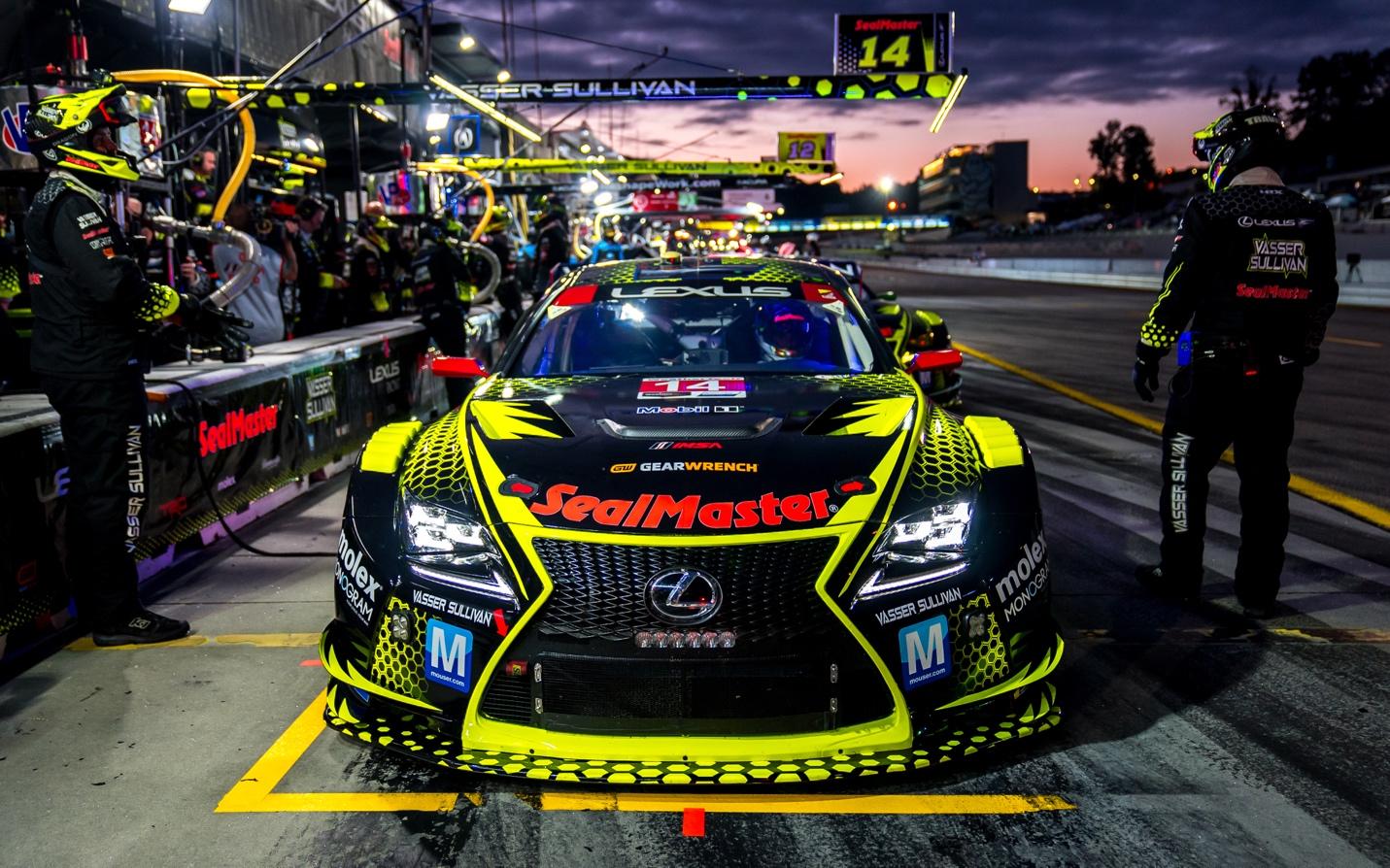
“A four-tire change used to take 20 seconds in 2020, but this year we’re consistently in 15 second range,” said Tatarevic, who points out that while that might not seem like a big deal, it has a ripple effect into other aspects of a pit stop. For example, if they need to add a small amount of fuel during a pit stop, the team engineers might only let the crew change two tires during the fill up. If they know their guys can pull off a four-tire change in 15 seconds, they won’t have to sacrifice time for extra rubber.
“Now that they know we can get four tires on in that time, they can do a short fill and we can put four tires on and give the driver the best handling car possible,” said Tatarevic, who says that this adds up to a driver getting three or four critical laps in that they wouldn’t get otherwise. The driver might even pull off a key pass that can change the outcome of the race.
“From the outside, you see a racecar, you see drivers going fast on tracks, and you see us slinging tires,” said Tatarevic, “but it’s the stuff underneath that you may not notice that makes a big difference.”
A Red Flag And A Gold Trophy
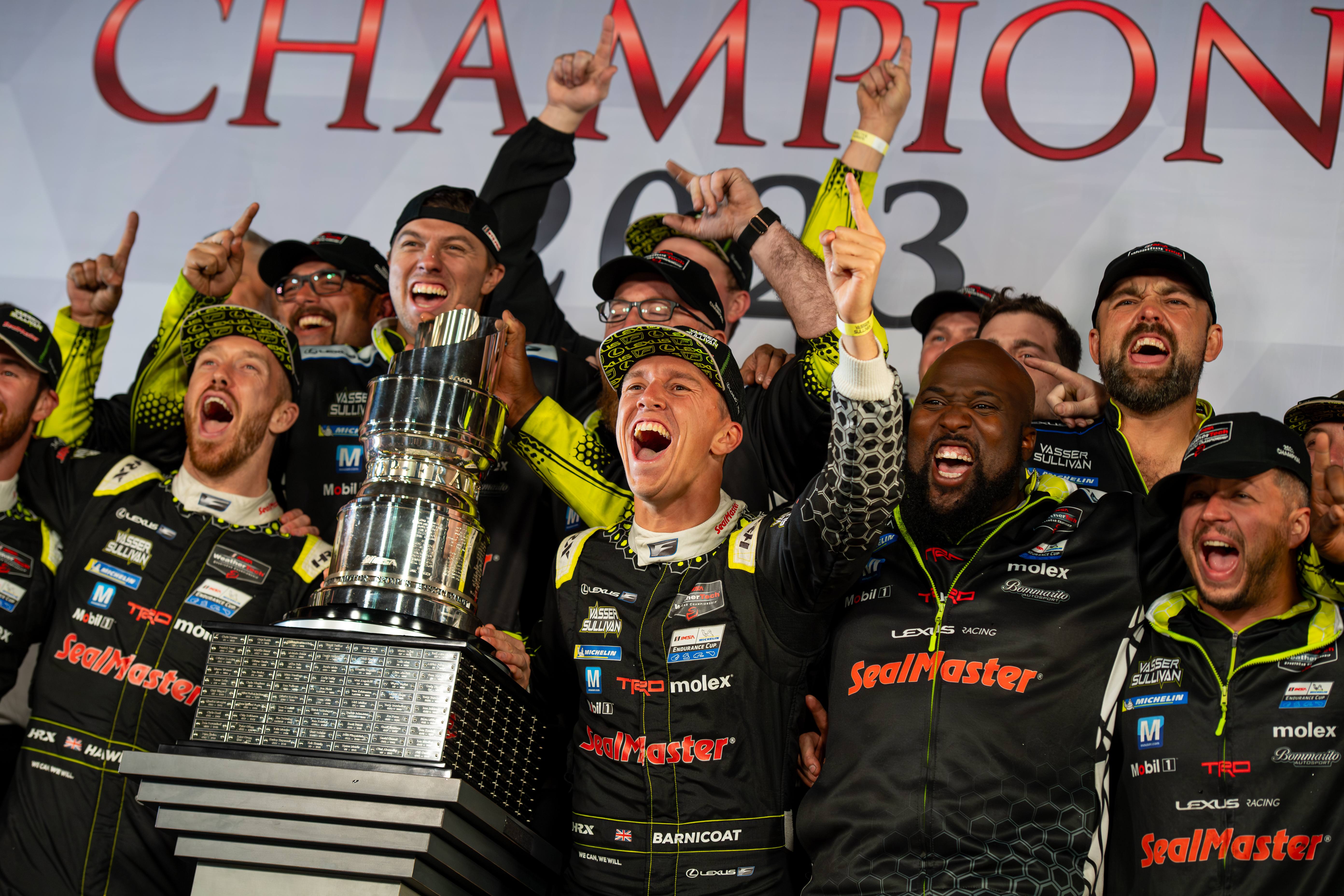
“We’ve never had an easy day where the race has been in our pocket—and that’s the way I’d prefer it,” said Jeffrey Bal, the Senior Manager of Motorsports, Partnerships, and Experiential Marketing for Lexus. “The moment we look like we’re fast for a weekend, I don’t sleep well those nights.”
He enjoys the uphill battle and abhors ever “getting comfortable.” He even sees a value in the races when they don’t end up on the podium. “It would be awful to have won or been on the podium every race and constantly have a target on our back,” he said, preferring to stay hungry even with the championship on lock.
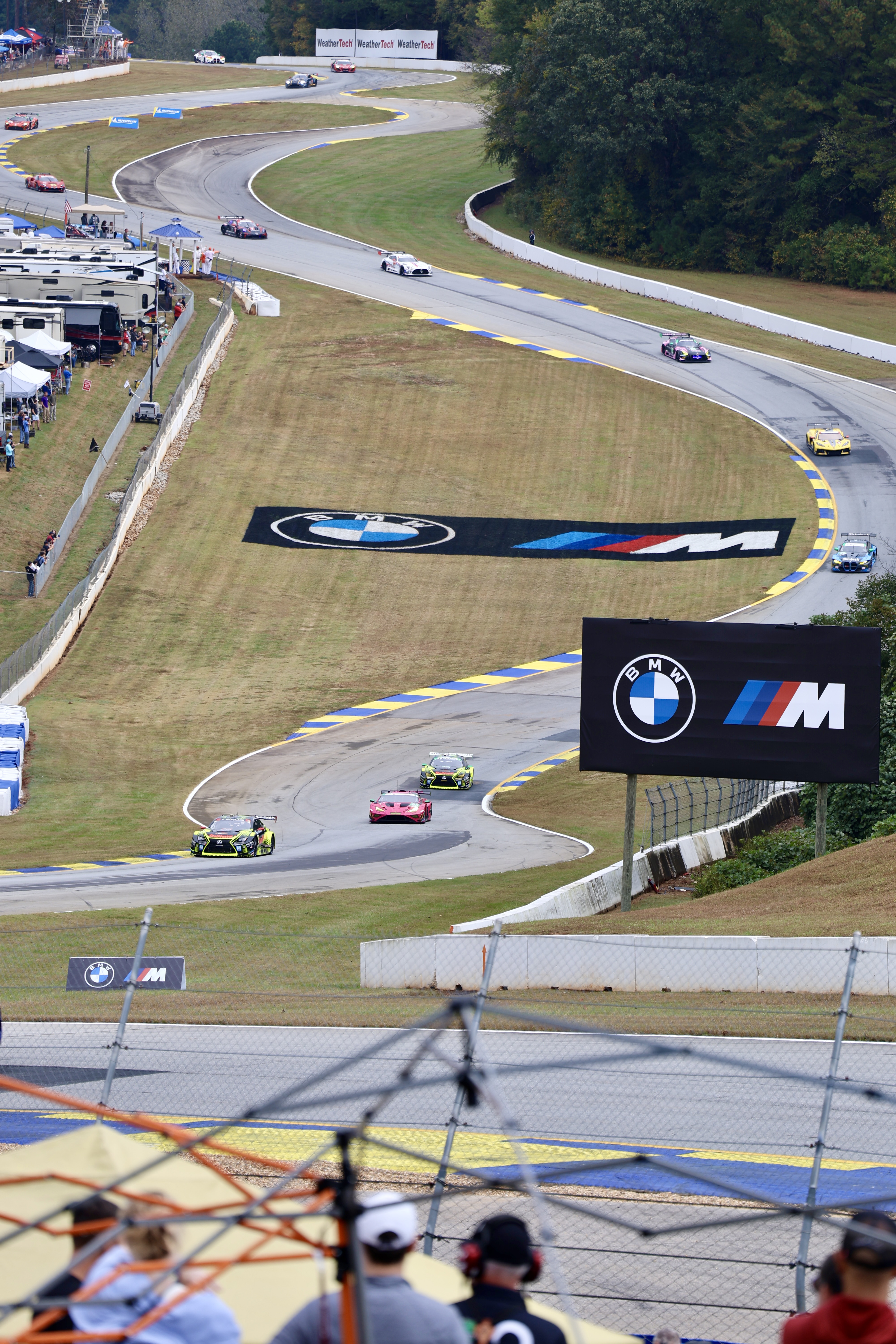
“Until we take the green flag, I’m still waiting for the other shoe, and wondering will it hit me in the face?”
Nearing the half-way point of the 10-hour race, another shoe did fall. The No. 14 car was vying for a win when Ben Barnicoat went off the track during turn 3, in a section of S-curves called The Esses. In the Lexus hospitality suite overlooking the track, Mahoney suddenly looked over my head at the TV coverage of the race and his face dropped as he uttered, “Oh, no…”
There was no question the car was out of the race. You could feel the energy shift almost instantly at Lexus HQ. It was like watching your star quarterback carted off on a stretcher. But that setback came with a very large asterisk: the championship had already been secured. And as soon as the podium ceremony for the race concluded, the team took the stage to hoist their trophies as the 2023 champions. They did it little by little with consistency all year—one millimeter, one second, and one race at a time.
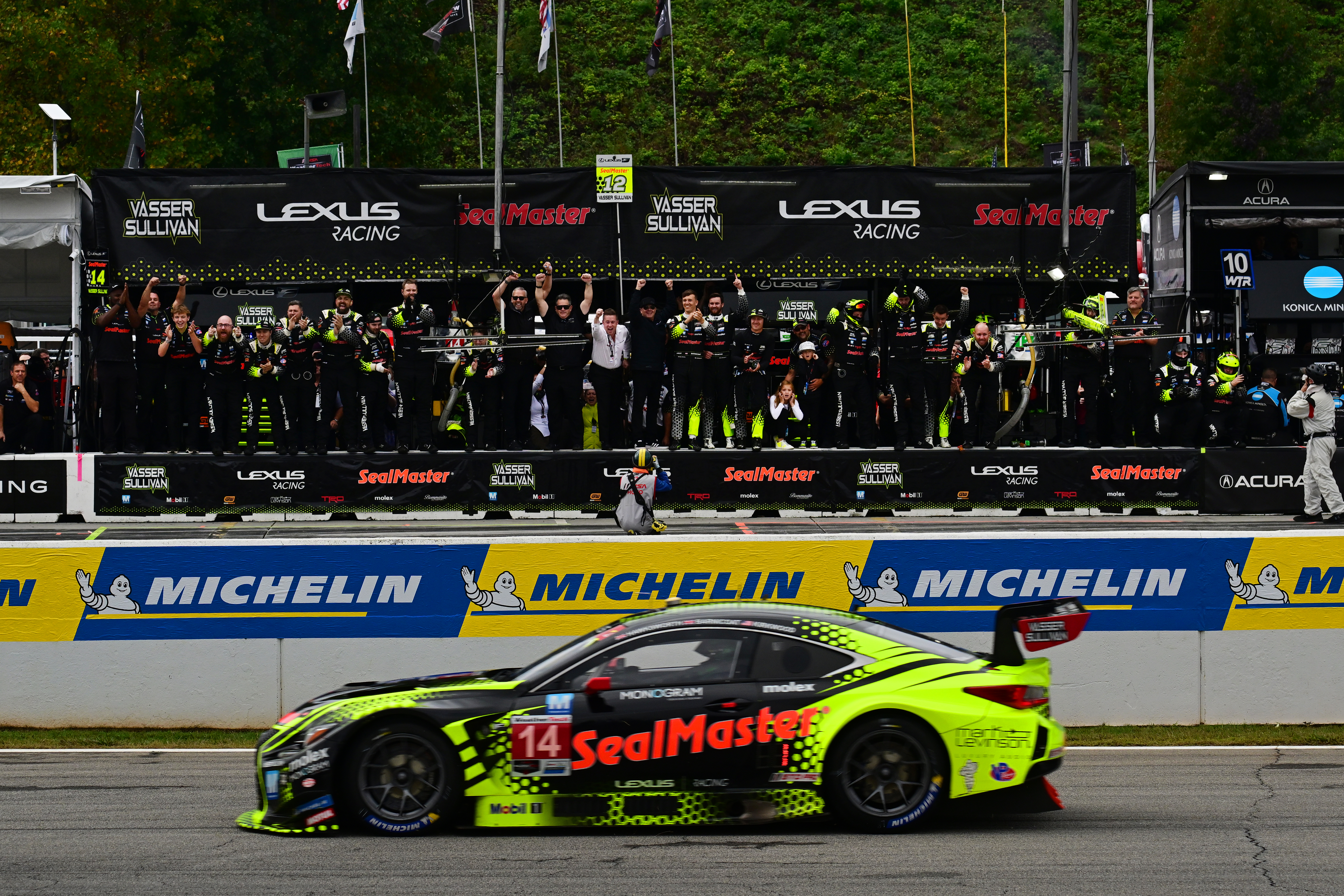
The first flag of the 2024 season drops at Daytona next January. It’s one thing to win your first championship, and another thing to defend it. But for people like Bal, that’s the only thing keeping them asleep at night.









